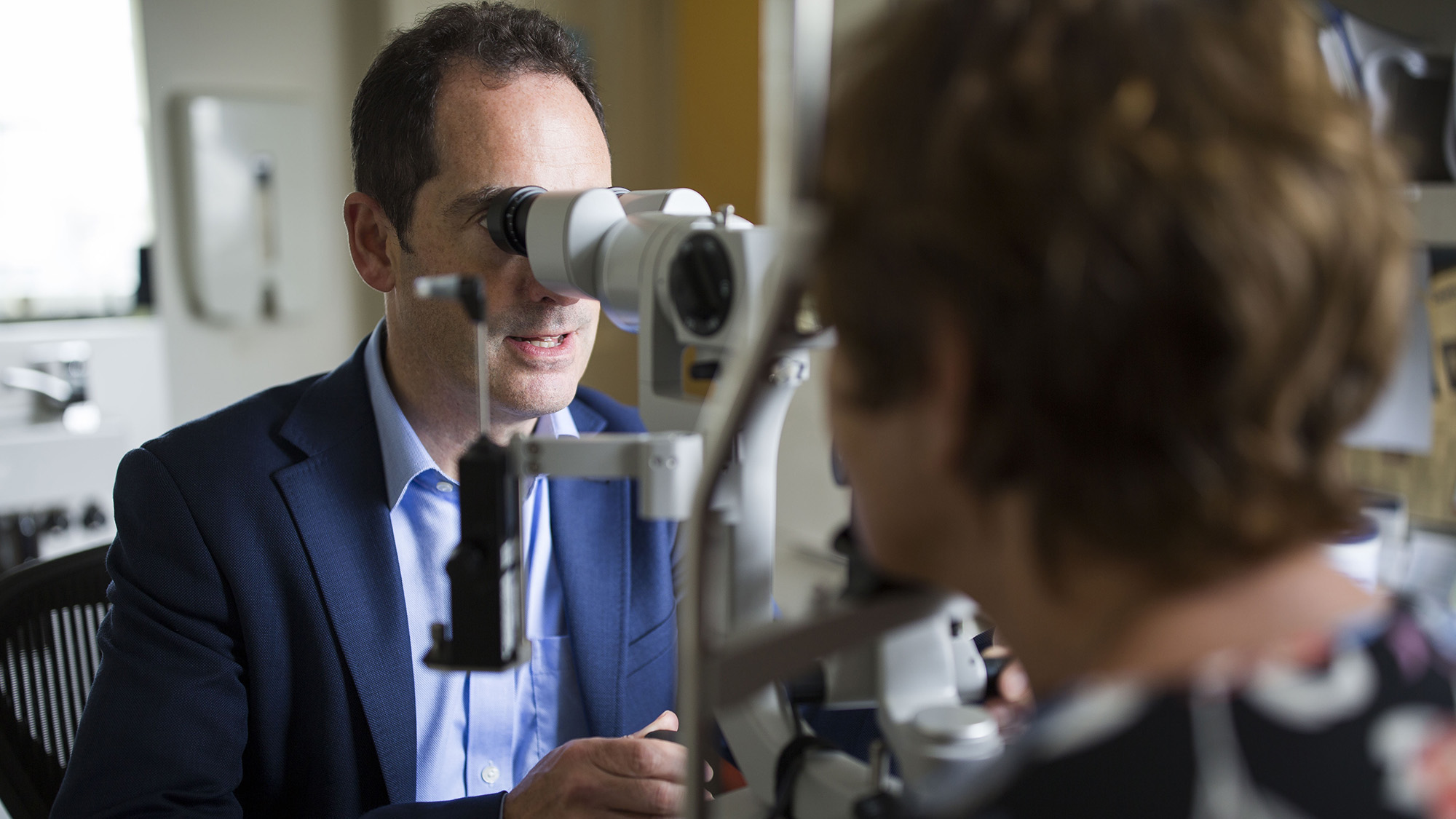Research
Glaucoma vitamin B3 trial
Research to determine if vitamin B3 can treat optic nerve damage caused by glaucoma is now recruiting participants.
Most therapies for glaucoma aim to reduce eye pressure to prevent nerve cell damage and vision loss.
CERA researchers are investigating a form of vitamin B3 that could help existing treatments prevent the disease’s progression.
If demonstrated to be effective, the simple daily tablet would be the first treatment that specifically targets nerve cells in glaucoma.
CERA Glaucoma Research Fellow Dr Flora Hui led a world-first clinical trial on high-dose nicotinamide (vitamin B3) that found it could lead to improvement in visual function.
Published in Clinical & Experimental Ophthalmology in 2020, the study showed improvement in the visual function of glaucoma patients who took a high dose of nicotinamide daily for 12 weeks on top of their regular treatment to reduce eye pressure.
Investigating impact
Dr Hui is now co-principal investigator of a larger trial set to start in 2022 after securing a $200,000 Glaucoma Australia Quinlivan Research Grant.
Participants with three common types of glaucoma will take vitamin B3 daily for two years and have the progression of their glaucoma monitored every four months.
At the same time, Assistant Professor Pete Williams from Sweden’s Karolinska Institutet will conduct a similar trial there. Other collaborators include CERA Managing Director Professor Keith Martin, Professor Jonathan Crowston from Duke NUS-Medical School in Singapore, and Professor Robert Casson from the University of Adelaide.
Supplementing treatments
If the new trial is successful, vitamin B3 could become part of a holistic glaucoma treatment plan.
The idea grew from previous research into mitochondria, which give cells the energy they need to function. If this supply is interrupted, the nerve cells, in this case at the back of the eye, can lose function.
Vitamin B3 had been shown to improve function in other cells and is now showing promise in the eye. The dose is higher than that found in food sources but is easily sourced in a tablet.
“All the current glaucoma therapies target eye pressure and reducing eye pressure,” Dr Hui says. “We do know that despite current treatments, some people continue to progress and lose vision.
“The idea with vitamin B3 is to try and supplement the nerve cells at the back of the eye and help them to function better. This can help reduce further vision loss.”
If successful, the trial could translate into a new treatment relatively quickly as nicotinamide is already available.
“If we find that it’s useful in glaucoma … once we get the news out doctors can start giving it to their patients almost immediately,” Dr Hui says.
“It’s really exciting because it’s what you want to do in research – you want to make a difference.”

Participant Q&A
How do I qualify for the trial?
You must be aged 18 and over and have primary open angle, normal tension or pseudoexfoliative glaucoma.
How do I join?
The best way is to join the CERA trial registry, which will allow CERA researchers to contact you if there is a trail you might be suitable for. Alternatively, you can ask your eye care practitioner to share your information though CERA’s refer a patient registry.
How long will it take?
Participants will take vitamin B3 and have their health monitored every four months over two years. Check-ups will take place in Melbourne and Adelaide.
How will my progress be monitored?
Every four months participants will visit a clinic in Melbourne or Adelaide for an eye check-up. It is similar to a regular glaucoma check, with a few extra aspects and an optional blood test for genetics analysis.
What happens when it’s over?
Researchers will collate the results to see if vitamin B3 used in conjunction with conventional therapies has helped to stem the progress of glaucoma-related vision loss. If so, doctors may start recommending it as part of an overall treatment plan.
* Earlier stages of this research were supported by the Jean Miller Foundation, Connie and Craig Kimberley Foundation, Ophthalmic Research Institute of Australia, Jack Brockhoff Foundation, Marian and EH Flack Trust, Fund and Board of Research Faculty Karolinska Institutet.
